What is DEF?
DEF, or Diesel Exhaust Fluid, is a mixture of urea and water utilized in diesel vehicles. It's injected into the exhaust system to convert harmful nitrogen oxide (NOx) emissions into harmless nitrogen and water vapor. Known as Selective Catalytic Reduction (SCR), this process was adopted by vehicle manufacturers in 2010 to comply with EPA emissions standards without sacrificing engine performance or fuel efficiency. DEF is distinct from fuel additives and is stored in dedicated tanks within vehicles.
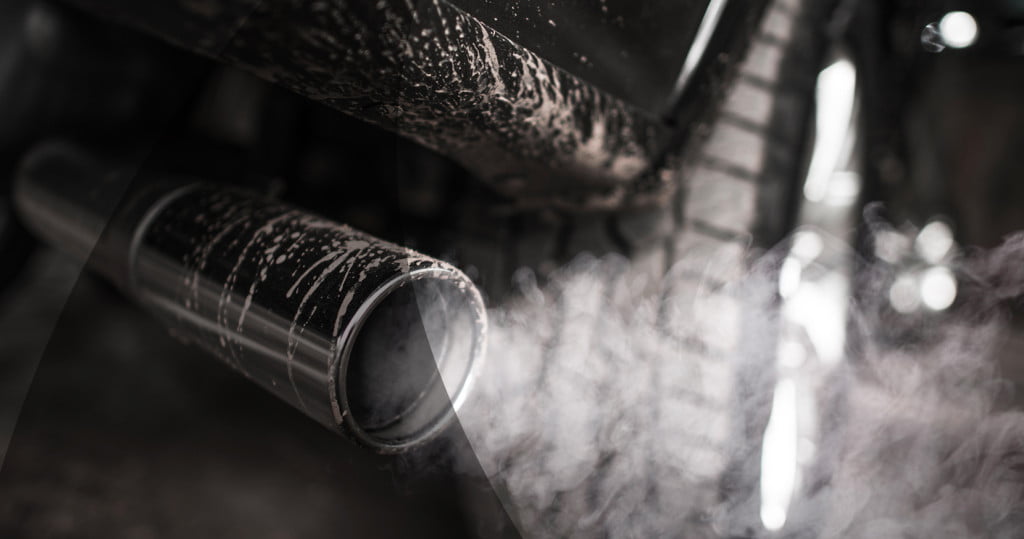
Who needs DEF, why?
DEF is necessary for medium- and heavy-duty vehicles equipped with diesel engines manufactured after 2010. These vehicles rely on DEF to meet stringent emissions regulations. Without an adequate supply of DEF, the engine's performance may suffer, potentially leading to reduced speeds and compromised efficiency.
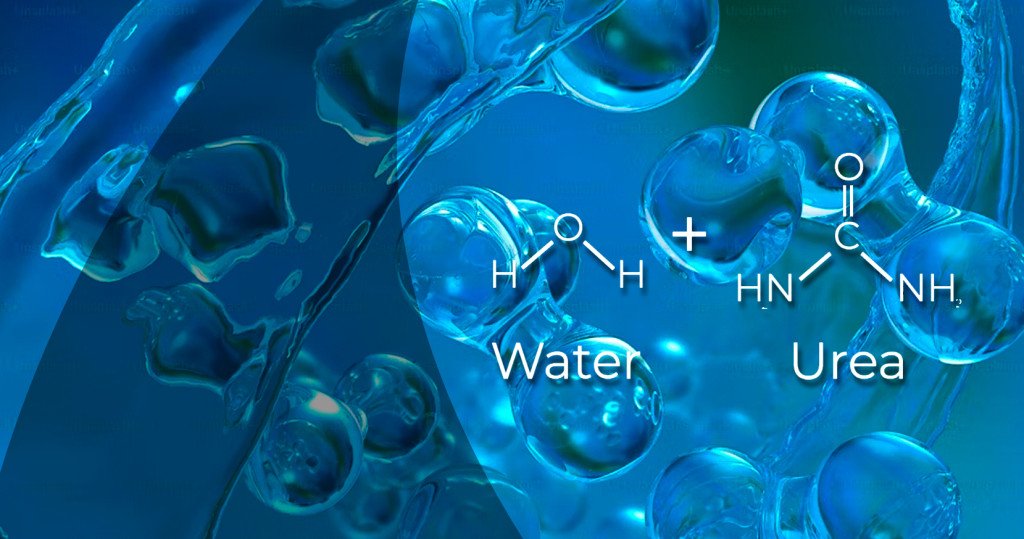
Ingredients & DEF Standards (ISO 22241):
DEF is a seemingly simple product composed of just two ingredients: urea and deionized water. However, ensuring its quality and effectiveness requires meticulous attention to purity standards, as outlined in ISO 22241, Diesel Engines – NOx Reduction Agent, Aqueous Urea Solution (AUS 32).
To meet the ISO 22241 standard, each ingredient must adhere to specific requirements:
Urea must be technically pure, containing only traces of biuret, ammonia, and water, with no presence of aldehydes or other contaminants such as sulfur, chloride, or nitrate compounds.
Water must have minimal inorganic, organic, or colloidal impurities, achieved through methods like single distillation, deionization, ultra-filtration, or reverse osmosis.
Additionally, DEF must maintain a urea concentration of 32.5%. This concentration ensures there is sufficient urea to effectively convert NOx emissions and support the reliable operation of Selective Catalytic Reduction (SCR) systems. Furthermore, it is the concentration that yields the lowest freezing temperature, ensuring usability in various environmental conditions.
Any fluid failing to meet these ISO 22241 standards cannot be classified or labeled as diesel exhaust fluid. Adhering to these strict purity requirements is crucial to safeguarding engine and fuel system integrity while effectively reducing harmful emissions.
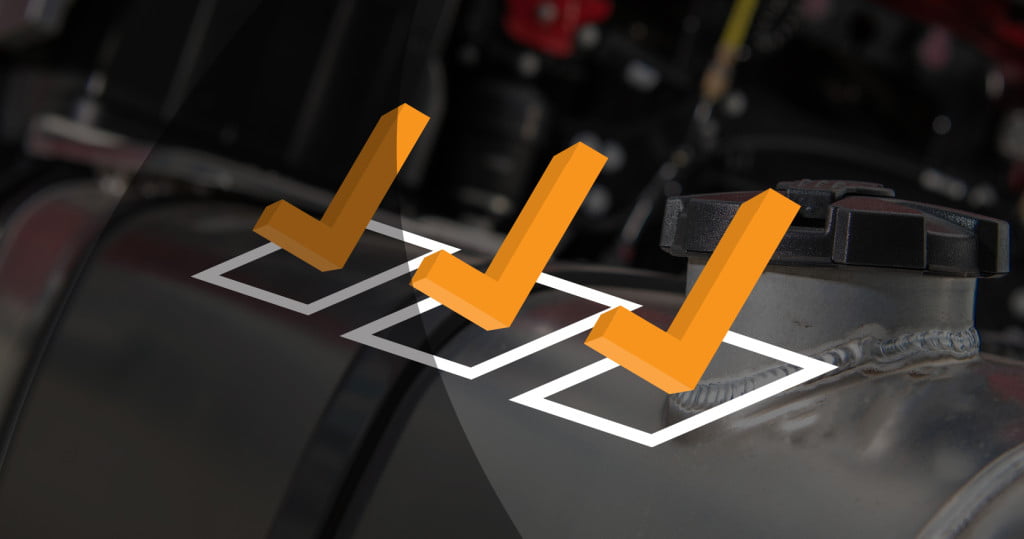
How much DEF should I use?
You won't need to refill DEF every time you top off your diesel fuel. Typically, DEF consumption amounts to around 2-3% of fuel usage for on-road vehicles and 3-5% for off-road applications. For instance, for every 100 gallons of diesel fuel consumed, you'll need approximately 2-5 gallons of DEF.
However, usage can vary notably, especially for engines with frequent stops or high idle times, like those found in solid waste trucks or delivery vehicles.
Despite this additional consumption, there are notable benefits, including enhanced fuel efficiency. Engine manufacturers anticipate that Tier IV (off-road) equipment can see up to a 5% improvement in fuel efficiency compared to non-SCR engines. Additionally, newer engines offer superior performance, power, and durability.
Tips for Using DEF:
Do's:
Don'ts:
What happens if Diesel gets into the DEF Tank?
Modern diesel engines incorporate Selective Catalytic Reduction (SCR) systems. If diesel contaminates the DEF tank, it poses a serious risk of damaging the SCR system. Given that diesel is lighter than DEF, it tends to float toward the top of the tank.
It's imperative to never mix diesel engine fluid with diesel fuel. To prevent confusion or accidents during refueling, DEF and diesel fuel tanks are entirely separate. DEF fillers are typically marked with a small, blue cap, located either adjacent to the diesel fuel filler or under the vehicle's hood.
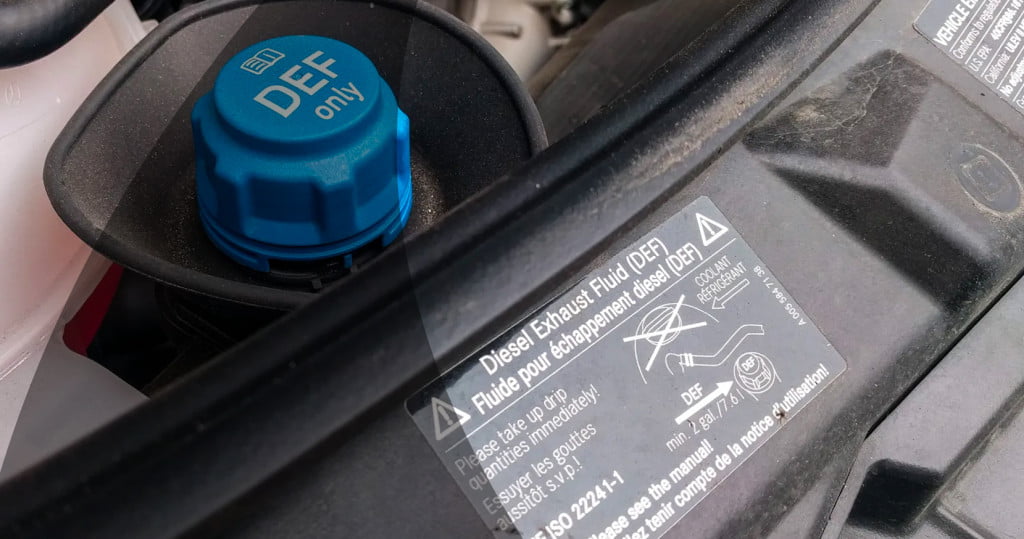
Should I add DEF to the Diesel fuel?
Adding DEF to the diesel fuel tank should be strictly avoided. Your vehicle is equipped with separate compartments for diesel fuel and DEF, ensuring their proper storage and usage. Introducing DEF into the diesel fuel tank can result in serious damage to the fuel system, necessitating flushing and potentially requiring repairs or component replacements. It's crucial to be well aware of which tank is designated for diesel fuel and which one is for DEF to prevent such mishaps.
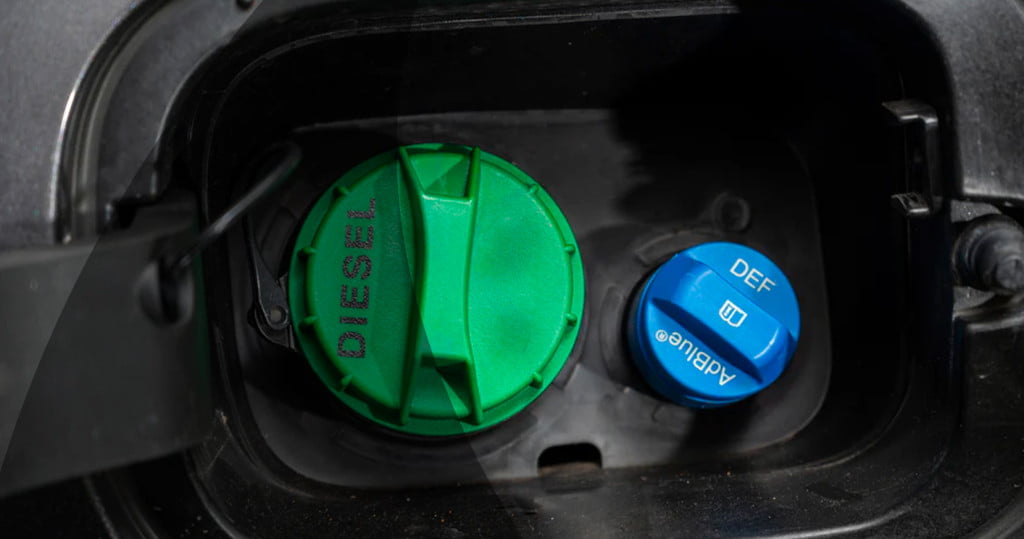
Using and refilling DEF:
DEF is typically stored in a dedicated tank, often constructed from corrosion-resistant, high-strength plastic. Vehicle operators commonly utilize a nozzle to introduce DEF into the vehicle's tank. Refilling methods may involve attaching a nozzle to a DEF jug or using a pump at a refill station.
In instances where a DEF jug lacks a built-in nozzle, such as smaller containers, it's advisable to employ a funnel. This ensures that DEF is poured into the tank without spillage or waste.
How to fill a DEF Tank:
To begin, carefully insert the nozzle into the filler neck on the DEF tank. Tilt the DEF jug slowly to initiate a controlled flow of DEF into the tank. Given the corrosive properties of DEF, it's crucial to prevent spillage onto other vehicle components. Any spilled DEF should be promptly cleaned from affected surfaces to prevent potential damage.
Do not overfill a DEF tank:
Avoid filling the DEF tank beyond the maximum recommended level to prevent potential damage. Overfilling the tank can compromise its integrity, especially when DEF freezes and expands. In such cases, there may not be sufficient space for expansion, increasing the risk of tank cracking and subsequent leaks.
Storing and handling DEF:
DEF has a freezing/crystallization point of 12°F (-11°C). When DEF freezes into a crystalline slush, its volume can expand by up to 7%. Many vehicles are equipped with heating elements to prevent in-tank DEF from freezing and potentially causing vehicle malfunctions. While freezing doesn't affect the efficacy of the product, it's essential to store DEF in tanks at appropriate temperatures.
The shelf life of DEF typically ranges from 1 to 2 years. However, exposure to direct sunlight or storage at temperatures exceeding 86°F (30°C) can shorten its shelf life. Since water can evaporate from tanks, it's crucial to keep them sealed and maintain an ambient temperature around 75°F (24°C). If the fluid evaporates, refrain from adding your own mixture, as this can disrupt the precise chemical balance of manufactured DEF.
DEF Glossary:
© 2025 Ultra1Plus™ LLC, DBA Ultra1Plus™